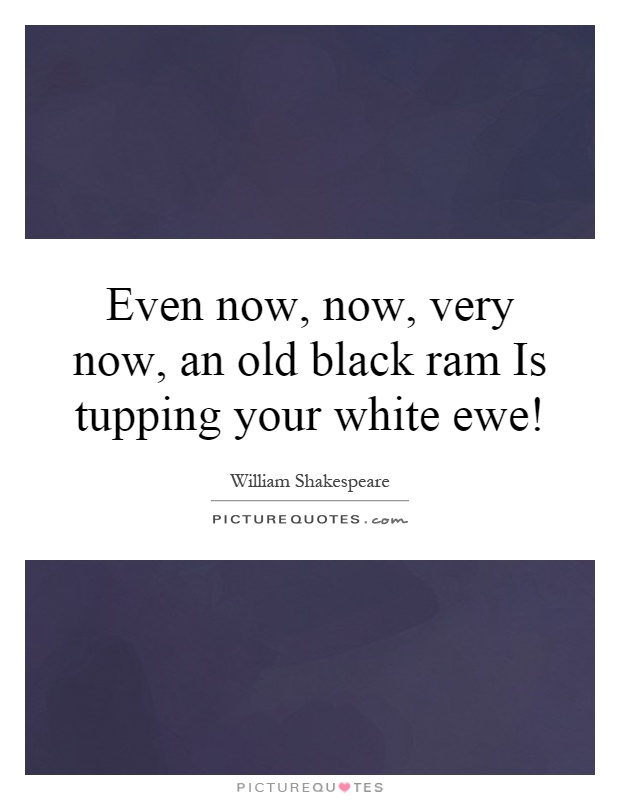Even now, now, very now, an old black ram Is tupping your white ewe!

Even now, now, very now, an old black ram Is tupping your white ewe!
The line "Even now, now, very now, an old black ram Is tupping your white ewe!" is from William Shakespeare's play Othello. This line is spoken by the villainous character Iago as he tries to manipulate Othello into believing that his wife, Desdemona, has been unfaithful to him with another man.The imagery in this line is powerful and evocative. The use of the word "ram" to describe the man who is supposedly sleeping with Desdemona is significant. In Shakespeare's time, a ram was a symbol of virility and masculinity. By describing the man as an "old black ram," Iago is not only suggesting that the man is sexually potent, but also that he is a dark and sinister figure. The contrast between the "old black ram" and the "white ewe" emphasizes the idea of purity and innocence being corrupted by lust and deceit.
The repetition of the word "now" in the line adds a sense of urgency and immediacy to Iago's words. He is trying to convince Othello that the affair is happening at that very moment, heightening Othello's sense of betrayal and anger. The use of the word "very" further emphasizes the intensity of the situation, as if Iago is trying to drive home the point that Othello's wife is being unfaithful to him right under his nose.
Overall, this line is a powerful example of Shakespeare's ability to use language to create vivid and emotionally charged scenes. The imagery of the old black ram tupping the white ewe is a striking metaphor for the betrayal and jealousy that drive the plot of Othello. It is a reminder of the destructive power of jealousy and the consequences of giving in to base emotions.












 Friendship Quotes
Friendship Quotes Love Quotes
Love Quotes Life Quotes
Life Quotes Funny Quotes
Funny Quotes Motivational Quotes
Motivational Quotes Inspirational Quotes
Inspirational Quotes